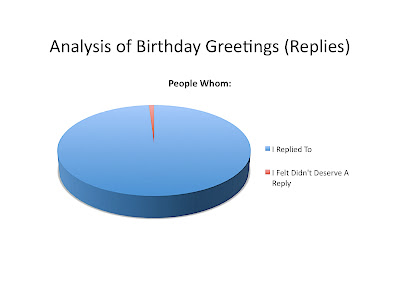Although I have work to do, I’ve decided to foresake work for a while to talk about this, because it’s something that’s very close to my heart.
After my dental appointment, I went to the Immigration and Checkpoint Authority Building to make a new Identity Card (IC), because my original IC had been misplaced. Why waste what was left of the day? I thought.
I took a queue number, filled out the forms, signed the documents and did whatever needed to be done. To digress a little, I had to take a photograph too because I hadn’t brought one along with me.
- When I sat down in the booth, I immediately flashed a smile at the camera. That’s my policy – it could’ve been the last photo I ever took in my life, and I didn’t want a picture of me looking sombre and solemn. Besides, I’ve come to realise that smiling photos on an identity document (and smiling in general, to be precise) have vastly different effects as compared to stern looks – people treat you nicer when they see your smiles. I’m serious.Anyway, when I started beaming, the lady taking my photo immediately told me, “Er, I think you don’t smile.” Wah, that really made my smile vanish and my instinctive reaction was to swear at her (in my head). But I decided to keep my cool, and brought the smile back. It wasn’t as big nor bright as the one before, but I’m adamant that no one tells Laremy Lee when not to smile – he’ll damn well smile when he wants to (and when it’s socially appropriate to smile, of course).
Moving back to where we had come from – when I finally reached the counter to submit everything, the lady asked me, “Er… You no Chinese name ah?”
I replied in the affirmative. It hadn’t been included in my birth certificate nor my original IC, though I’m not too shure why. Nevertheless, I asked her nicely if I could insert it in now. I like my Chinese name; it has a lot of meaning and value to me, and to digress a little once again –
- My Chinese name is 李庭辉 (li ting hui). The ‘li’ is my family name/surname, as should be evident. The ‘ting’ means family, and is the generational name of all males born to my father and his brethren. (I think the generation names in my family kind of follow the characters of a poem, but I have to check this out with my dad again.) The ‘hui’ means bright or brilliant, as in the adjective for light, and it’s my personal name. Putting it all together, the name seems to mean ‘brilliance in the Lee family’. I think it’s true but a lot of people disagree with me when I suggest this, rolling their eyes at me as they vehemently shake their heads. I think they’re secretly jealous.
Anyway, the lady very kindly said she’d check, and she did – twice: once, with her supervisor, and once with the Standard Operating Procedures, I presume – but when she returned, she shook her head sadly. It can’t be done, she told me.
Why? I asked.
“Since you don’t have your dialect name in your original identity card, we can’t transpose the Mandarin characters from there,” she said. “Unless… we can draw the records from your birth cert.”
“But the name isn’t in my birth cert,” I replied.
“Or report books at school?” she ventured.
Everything’s in English, was my first thought. Then I paused. I realised I had some certificates from the Singapore Teochew Lee Clan Association that had my Chinese name written on it. I paused again. I realised again that I could’ve simply brought my sister’s certificates, but no one would know, because there was no other written connection that would link Laremy Lee and 李庭辉.
The only logical solution would be to get someone with some sort of authority to vouch for me that Laremy Lee and 李庭辉 were one and the same person. But who? My father? Besides, how would anyone know if he were lying or telling the truth, if even I could not be relied upon to vouchsafe my own name?
On one level, it made sense. I could’ve been assuming a false identity, for all they knew. But on another level, it was infuriating. Don’t I have the personal liberty to name my own self and decided what I want to be called?
I felt rather discombobulated; the dental procedure had made my teeth hurt, (also, I had just made the biggest purchase of my life on the dental procedure, effectively bringing my bank balance from a five-digit sum to a four-digit sum) plus I was hungry from not having been able to eat solid food. Being told that I could not ascribe my own identity didn’t really help matters.
“Which means I have to go back and return to get the documents?” was all I could come up with in rejoinder.
She nodded. I laughed. I asked her to carry on with processing the form. I never knew that having to prove my own identity could take so much effort.



